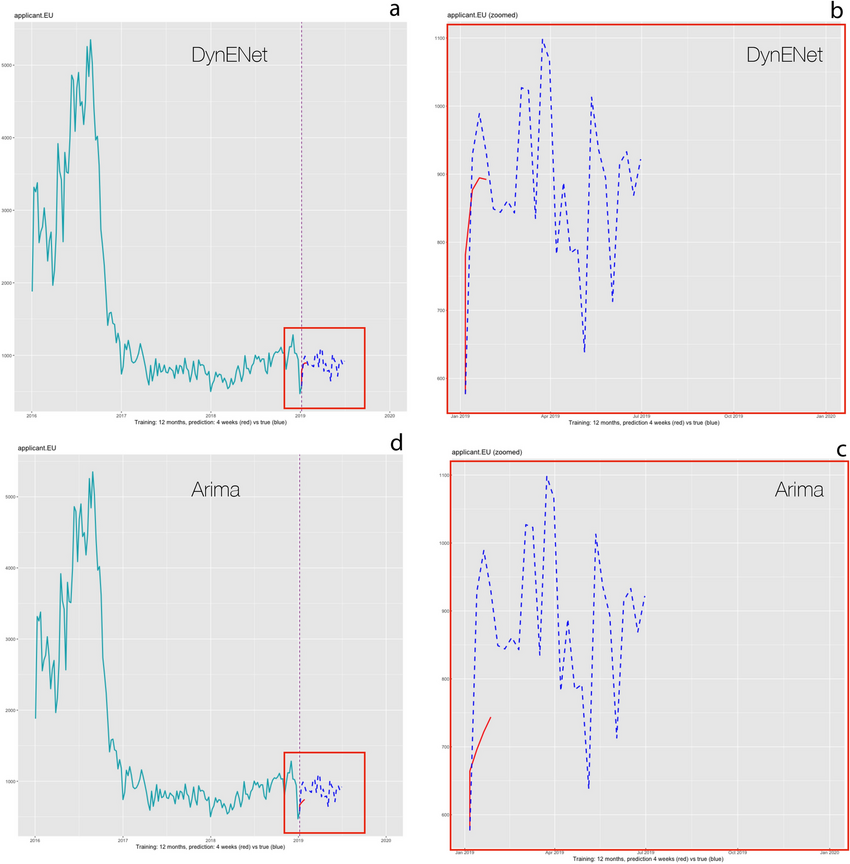News
Press Release Published: 3 February 2022
EUAA and European Commission scientists unveil forecasting model for asylum-related migration, based on Big Data

On 27 January 2022, researchers working for the European Union Agency for Asylum (EUAA), the European Commission (Joint Research Centre) and University of Catania published a new methodology for forecasting asylum claims lodged in the EU, based on machine learning and big data.
Published in Nature Scientific Reports, the 6th most-cited journal in the world, the aim of the model is to increase the preparedness of EU Member States for sudden increases in asylum applications in order to process them quickly and fairly; while also foreseeing proper reception conditions in line with EU law.
By integrating traditional migration and asylum administrative data, such as detections of illegal border-crossing and recognition rates in countries of destination, with big data on negative and conflict events, as well as internet searches in countries of origin; this new machine-learning system, known as DynENet, can forecast asylum applications lodged in the EU up to four weeks in advance.
The approach draws on migration theory and modelling, international protection, and data science to deliver the first comprehensive system for forecasting asylum applications based on adaptive models and data at scale. Importantly, the approach can be extended to forecast other social processes.
Figure: The new forecasting model (DynENet - top) does a better job of forecasting asylum needs than the standard off the shelf option (ARIMA - bottom).

Source: Nature
Since 2011 the EU, initially through the European Asylum Support Office (EASO) and since January 2022 with its new European Union Agency on Asylum (EUAA), has supported its Member States in building the world’s only multinational asylum system. Paired with an enhanced mandate to deliver operational support to Member States under pressure, the data that this new forecasting tool provides could not only help Member States increase their internal preparedness, but also inform where first-line operational assistance from the Agency to national authorities in the EU might be needed.
The research paper can be found at: Forecasting asylum-related migration flows with machine learning and data at scale (nature.com)
Any further information may be obtained from the European Union Agency for Asylum’s Press Office at the following email addresses:
- Press Office: press@euaa.europa.eu
- Andrew McKinlay, Press Officer: Andrew.McKinlay@euaa.europa.eu
- Anis Cassar, Spokesperson: Anis.Cassar@euaa.europa.eu

